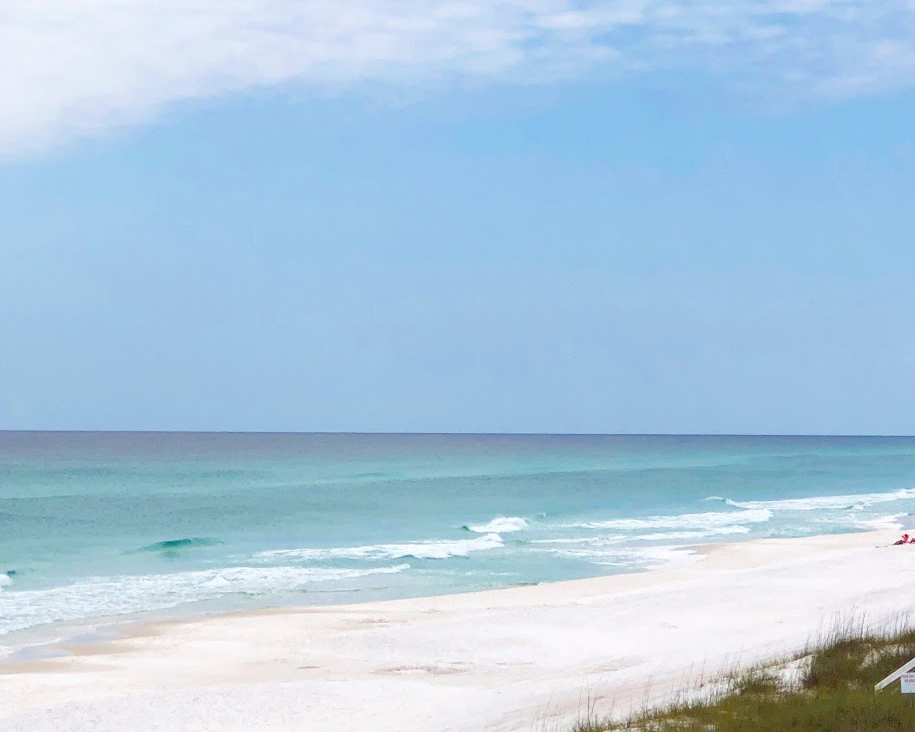


On November 4, 2018, Walton County Commissioners voted unanimously (5-0) to uphold Customary Use for Walton County beaches, meaning the next step is to take the matter to court to have it fully re-instated after Florida HB 631 rendered it null. More than 12,000 signed affidavits were submitted from those who want customary use to remain in place and more are still being accepted. The intent of these affadavits is to prove that the beaches have been used by the public since time began and shouldn’t be rendered as private land. To learn more, visit: floridabeachesforall.org
What is Customary Use?
Customary use is a common law term referring to the public access of the sandy beach in front of privately-owned beachfront property.
Some gulf-front properties in Florida have a property line that extends to the “mean high water line.” The mean high water line is calculated using the mean high water line tidal plane with the beach.
The Walton County Customary Use ordinance has been in effect since 2017, stating that the public has the right to enjoy the sandy beach as people have done since time began without fear of prosecution, both at public beach access points and in front of beachfront homes.
However, in April 2018, the Florida Legislature passed House Bill 631 which was signed by the governor which struck down this ordinance. Beginning July 1, 2018, the Customary Use Ordinance in Walton County will no longer be in place.
Sheriff Michael Adkinson Addresses Trespassing on Private Property on Walton County Beaches
“What I do know is that I cannot in good faith instruct deputy sheriffs to make an arrest for trespassing after warning when I know they cannot be prosecuted. As such, I am directing my deputies not to make arrests for trespass after warning for routine activities such as walking, sitting or transversing the beach. Ultimately, we all have to work together. This is a county that, at the end of the day, the citizens that want to come to use the public beaches and the private property owners who are entitled to the reasonable use and enjoyment of their property have to learn to get along. We have to learn to be good neighbors. I’m optimistic that we can do that.” – Sheriff Michael Adkinson on the issue of private property on Walton County Beaches.
Posted by Walton County Sheriff, Michael A. Adkinson, Jr. on Friday, 29 June 2018
Beginning July 1st, 2018, when customary use ordinance changes go into effect, the Walton County Beach Operations and Code Enforcement officials will no longer have jurisdiction over property that is considered private based on the new customary use law.
Walton County Sheriff’s Department will be the governing force for any conflicts or complications that may arise on the space in front of the properties since they would now be considered private property.
Walton County Sheriff’s office will not police the beaches looking for violators, They will, however, respond to complaints from property owners.
Property owners must be prepared to produce documentation of their property lines. However, according to the Sheriff’s video statement, trespassers will NOT be arrested for walking or sitting on the beach, even if a warning is issued. However, common sense rules will be applied to other issues related to disturbing the peace.
No, you can absolutely still walk our beautiful beaches for as far as you wish. There will still be plenty of space in the wet sand area for beach-walkers to enjoy. And, as the video above notes, officers will not arrest anyone for trespassing, as long as they are being respectful citizens.
No. Only signs are permitted, no fencing or ropes, and the signs must be of specific size and message stating Private Property. All signs must be removed from the sandy beach by 5 PM daily or Walton County Beach Code Enforcement will remove them and dispose of them.
South Walton currently has over 50 public beach access points, including 8 Regional Public Beach Accesses complete with parking, restroom facilities, and lifeguards.
The customary use changes do not affect our public beach accesses, only privately-owned beachfront property.
Planned communities such as Rosemary Beach, Alys, Watersound, Seaside and Watercolor, will see no changes to their beach access for their guests. Seaside also has public beach access at town center and this will not change.
For the vast majority of visitors and locals, this change will have no effect on their enjoyment of our beaches. However, if you do see signs posted, please remember to be respectful and adhere to the posted signs.
The wet sand of the beach is not private property but the dry sand to the dunes and up to the dwelling can be considered private and property owners may choose to enforce this.
For more info, please contact Walton County Sheriff’s Department.
This article was originally published June 28, 2018.


